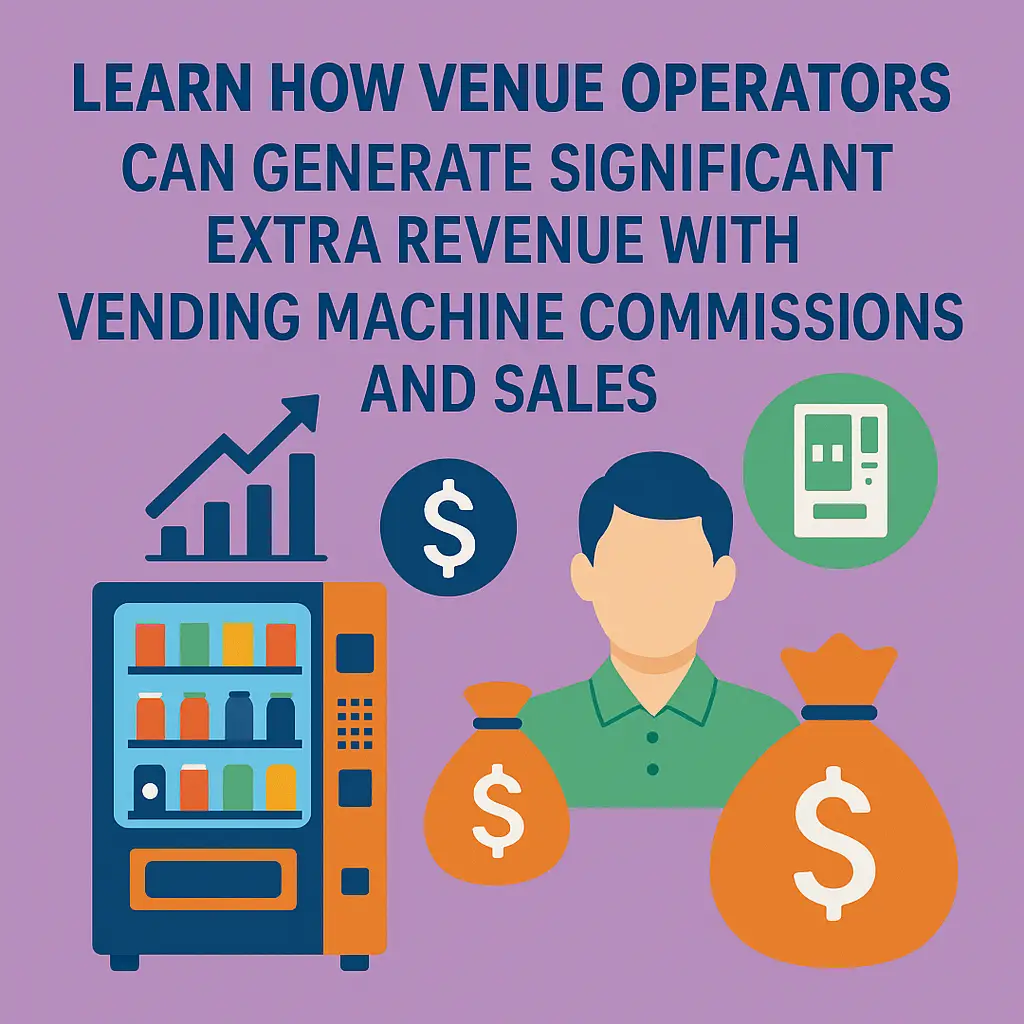Revenue Opportunities from Vending in Entertainment Venues
Learn how venue operators can generate significant extra revenue with vending machine commissions and sales.
Back to Vending for Entertainment Venues ResourcesLearn how venue operators can generate significant extra revenue with vending machine commissions and sales.
Back to Vending for Entertainment Venues ResourcesBy aligning product mix, placement, and payment options with event flow and guest behavior, vending becomes a reliable revenue stream without disrupting operations.
![]() Increase per-guest spend with impulse and convenience items
Increase per-guest spend with impulse and convenience items
![]() Flexible product assortments for concerts, shows, and family events
Flexible product assortments for concerts, shows, and family events
![]() Contactless payments and dynamic pricing boost conversions during peak times
Contactless payments and dynamic pricing boost conversions during peak times

Entertainment venues—from theaters and concert halls to arenas and family attractions—have a clear opportunity to increase per-visitor revenue through thoughtfully deployed vending. In addition to standard concession stands, vending stations capture impulse purchases before, during intermissions, and after events. For an overview of how full-service vending works, see what full-service vending offers.
Vending contributes to venue income through direct sales, commission arrangements, and event-specific merchandising (branded items, themed snacks, or limited-time offers). Some venues incorporate elevated pricing during premium events or bundle vending items with VIP experiences to lift average ticket revenue. Learn more about the benefits for entertainment locations in this guide to vending in entertainment venues.
Optimizing product mix based on audience demographics and event type increases conversion rates. Family-oriented shows sell different items than weekday corporate events or late-night concerts. Dynamic pricing, seasonal assortments, and promoted best-sellers help maximize sales per guest. For ideas on healthier and specialty options that can broaden appeal, consult our guide to healthy vending.
Offering contactless payments, mobile wallets, and cashless pricing options reduces friction and shortens transaction time during high-traffic windows. Telemetry and remote reporting enable venues to monitor sell-through and restock proactively, ensuring popular items are available when demand peaks.
Vending can be integrated into sponsorship packages or used to sell limited-edition merchandise that complements marketing partnerships. Branded machines or co-branded product placements create additional promotional value while producing measurable sales. For examples of how vending fits into broader facility programs, review our overview of vending services for public buildings at vending programs in public facilities.
Sales data reveals purchase patterns by event, time of day, and audience segment. Venues can use that intelligence to allocate inventory, set tiered pricing for premium events, and plan targeted promotions—turning vending from a passive amenity into an active revenue management tool.
When implemented with clear service and monitoring practices, vending requires minimal day-to-day oversight from venue staff. Scheduled restocking, remote diagnostics, and straightforward placements help venues add retail capacity without diverting significant resources. For practical next steps and how commissions and operating models typically work, see this resource and explore additional tips in our Resources library.
If you’re exploring ways to increase concession revenue, Vending Exchange can help you evaluate options and get vending set up at your venue. Complete the form on this page to start the conversation.
Vending drives revenue through retail sales, commission arrangements, and impulse purchases tied to event timing and guest flow.
Lobbies, concourses, entryways, and near seating clusters typically see the highest volume and conversion rates.
Yes. Product assortments and pricing can be adjusted for family shows, sports events, concerts, and corporate gatherings to match demand.
Cashless and contactless payments increase transaction speed and uptake, often raising average ticket sizes and total sales.
Yes. Arrangements include percentage commissions, fixed guarantees, or hybrid models that tie payouts to sales performance.
Implementation timelines vary, but many venues can add temporary or permanent stations within days to a few weeks, depending on logistics.
Yes. Machines and product offerings can be used for branding, sponsorships, and selling event-specific merchandise to drive extra income.
Placement, pricing strategy, restocking cadence, and payment technology all influence sales and net revenue for venues.
Sales data helps identify best-sellers, peak purchasing times, and audience preferences to inform stocking and promotional decisions.
Many implementations are designed to minimize staff involvement through scheduled servicing, remote monitoring, and streamlined restocking processes.